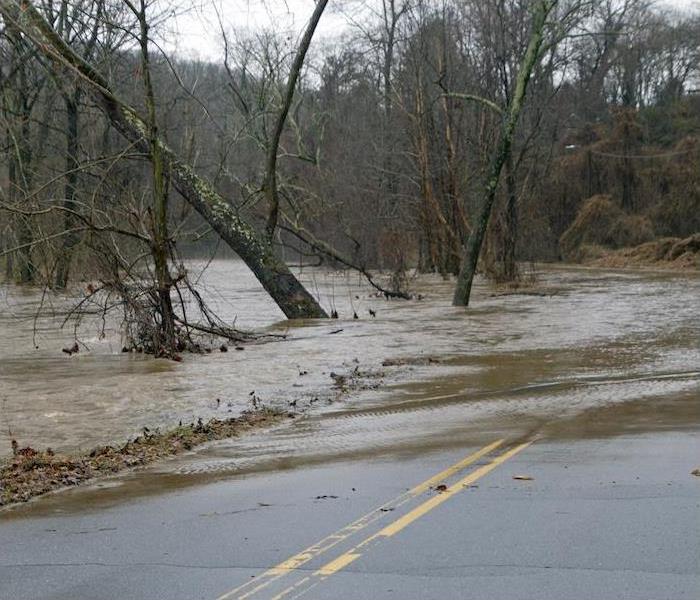How Flash Floods After Storms Can Be Dangerous | SERVPRO® of Cedar Mill/Oak Hills
11/27/2020 (Permalink)
Though there are many weather events that can cause issues or even lead to fatalities, many people are unaware that flash floods are on the list of things to be seriously concerned about. While heat is the leading cause of weather-related deaths, floods are a close second in the United States, with flash floods being the most dangerous type.
Flooding is always a frightening event, but flash floods are particularly dangerous because of how quickly they can begin—even in areas not typically impacted by flooding. Any body of water can spawn a flash flood if there is enough rain, and because there are often only minutes to react, knowing the facts in advance is so important.
Understanding What Is Considered a Flash Flood
A traditional flood will slowly begin to rise, while a flash flood must occur within the first six hours after a storm, but they often happen in as few as three hours.
Flash floods tend to be more common in urban areas due to the possibility of blocked storm drains and drainage systems, and they can occur even in areas that are not situated low enough to be a regular flood concern.
Understanding the Warning Guidelines for Flash Floods
As we have discussed, flash floods occur with little to no warning, which is why you should always stay alert to local broadcasts when there is a storm occurring. Flash flood watches will be issued for broad areas if it becomes a possibility, which is when you want to make sure you have a safety plan in place. For a warning, you may only have moments to react—and for a flash flood emergency, the incident is imminent and you must move to high ground as quickly as possible.
Understanding How to Increase Safety for a Flash Flood
Being safe is so important during any storm or severe weather event, especially when flash floods become a possibility. These are some of the best rules to keep in mind to make sure you and your family are always as safe as possible:
- When storms involve heavy rain, stay inside and away from low-lying parts of properties.
- Always have an evacuation plan for floods and be sure your family is aware of it.
- Avoid trying to cross floodwater, whether in a vehicle or on foot.
- Avoid touching floodwater or allowing children to play near it, as it can be heavily contaminated.
- Always turn around if there is water on your intended route of travel.
If your home or business has been damaged due to a flood or other severe weather, you can depend on us. Contact us at any hour to learn more about our services or to report damage to your property.






 24/7 Emergency Service
24/7 Emergency Service
